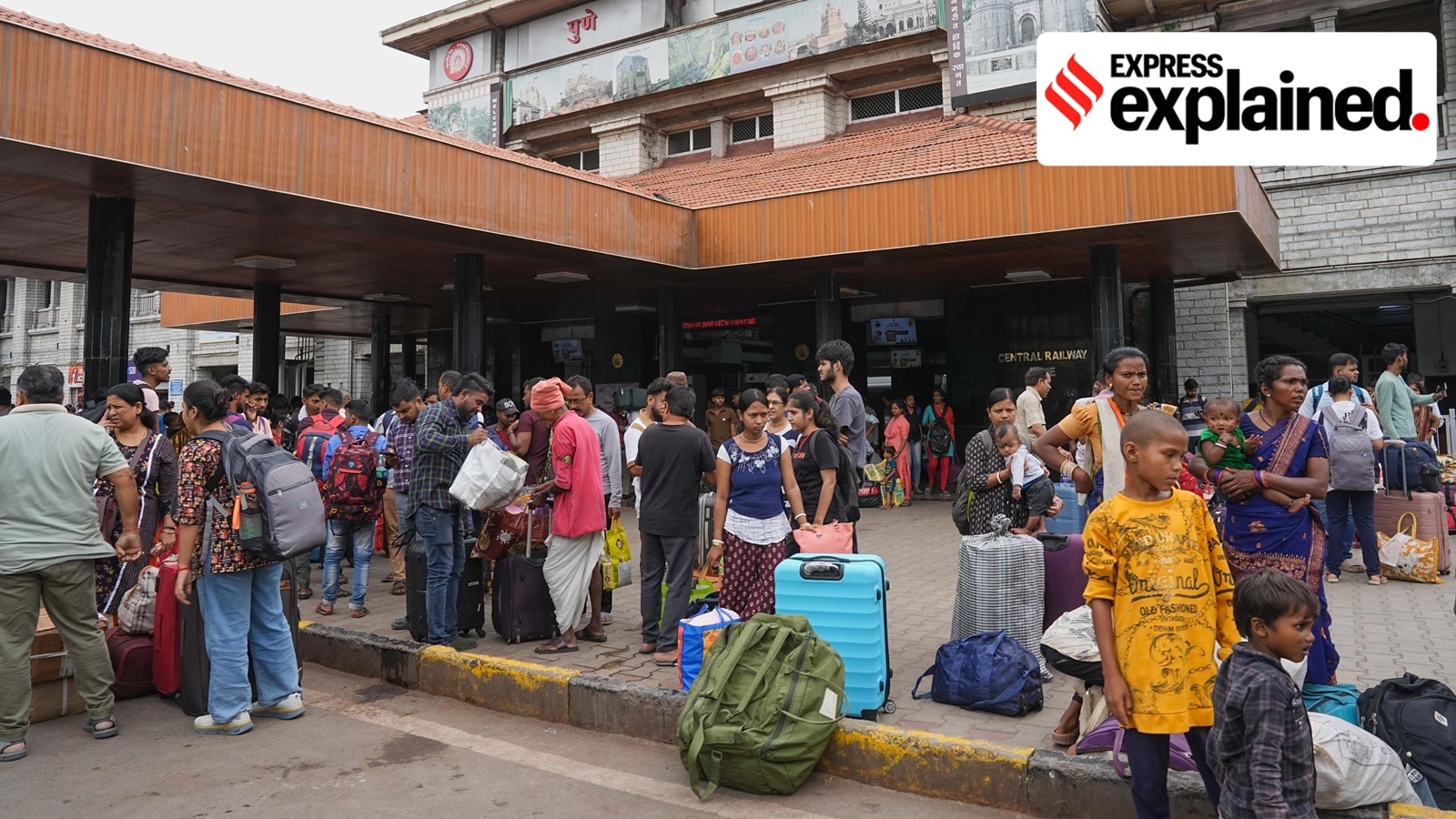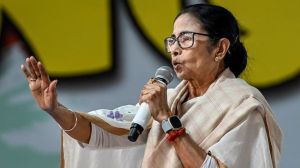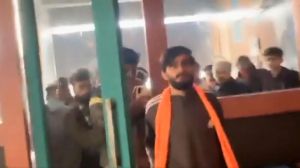Why are Uber, Ola drivers on strike in Mumbai?
As passengers face delays, cancellations, and price surges, the strike has brought renewed attention to the regulatory vacuum in which these app-based travel services function.
 Ola and Uber drivers also organised a strike in Pune in recent days, impacting passengers at the Pune Railway station. (Express photo by Arul Horizon)
Ola and Uber drivers also organised a strike in Pune in recent days, impacting passengers at the Pune Railway station. (Express photo by Arul Horizon)Aggregator taxi services such as Uber, Ola, and Rapido are experiencing disruptions in Mumbai because a section of drivers has been on a strike for the last three days, demanding improved pay and working conditions.
The agitation has resulted in longer wait times and fewer cabs on the road in many areas of the city, impacting thousands of commuters.
As passengers face delays, cancellations, and price surges, the strike has brought renewed attention to the regulatory vacuum in which these app-based travel services function.
What are the drivers demanding from aggregator platforms and the government?
The strike intensified after a 46-year-old cab driver died by suicide on Wednesday (July 16) as he was unable to repay the installments for his car.
* The cabbies’ main demand is that fare rates approved by the Regional Transport Authority (RTA) should be applied to rides booked through aggregator platforms as well.
* According to drivers, the platforms often offer rides at heavily discounted rates, and the difference is deducted from the amount payable to drivers. They want the aggregators to bear the cost of such discounts themselves instead of reducing driver earnings.
* The driver partners are also demanding that higher fares collected during surge pricing be considered aggregator profits, and that their shares should remain fixed according to RTA rates.
* Another major demand is that airconditioned SUV cabs under the “Cool Cab” category should have separately defined fare slabs that are commensurate with their higher operating costs.
* Drivers also allege that their IDs are being blocked for minor or unverified issues, which prevents them from earning their livelihood. They have been demanding a transparent review process and the reinstatement of suspended IDs.
* The drivers also want restrictions on the issuance of new cab and auto-rickshaw permits, and their inclusion under the existing Auto Rickshaw and Taxi Welfare Board for financial and legal support.
Does a regulatory policy exist for aggregator services in Maharashtra?
The Maharashtra government is yet to roll out the special policy to regulate aggregator services that it announced one more than a year ago. A senior official from the Transport Department said that regulations on fare structures, licensing, and enforcement have been prepared, but they are yet to get final approval.
Meanwhile, some app-based services such as CityFlo buses, Uber Shuttle services, and Rapido bike taxis have even been declared unauthorised and have been asked to cease operations.
Officials concede that the regulatory gap is leading to conflicts between platforms, drivers, and passengers, with no clear mechanism for dispute resolution. However, they attribute the current strike as “a matter between the drivers and the aggregators”.
Dr Keshav Kshirsagar, president of the Maharashtra Kamgar Sabha, alleged that aggregator companies are exploiting gig workers. “The drivers are compelled to go on strike as their issues are not being heard. The government has to respond before the situation escalates,” he said.
How many app-based cabs are on the road in Mumbai, and how significant is their strike?
As per the Mumbai Metropolitan Region Transport Authority (MMRTA), more than 1.2 lakh app-based taxis were working in the city as of 2024.
This number included black-and-yellow (kaali-peeli) taxis registered on aggregator platforms, and ‘white numberplate’ vehicles in categories such as economy, premium, and SUV.
Not all drivers are on strike, but even a partial restriction of the fleet has triggered serious disruptions given the city’s reliance on these services. Cab services outside the Mumbai Metropolitan Region, in cities such as Pune and Nashik, have also been impacted.
Commuters using aggregator apps on the days of the strike experienced waiting times up to an hour, mostly in locations such as Andheri, Bandra-Kurla Complex and Thane, which see heavy office-hour traffic. People trying to reach the airport or railway stations are also facing disruptions.
Commuters have complained of cabs failing to turn up after booking, and of drivers calling passengers to inform them about the strike.
“I commute every day from Mahim to my office in Parel by cab. While I have not experienced a cancellation, for the past three days, it’s been taking me more than half an hour to get a ride that is normally booked in 10 minutes,” Aditi Budhkar, a corporate lawyer, said.
- 01
- 02
- 03
- 04
- 05






































